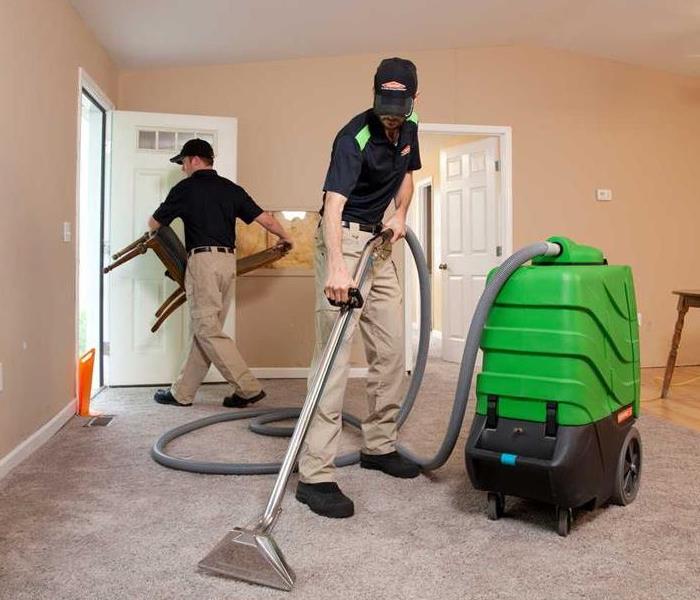What Type Of Water Damage Is Covered By Insurance?
6/3/2022 (Permalink)
Water damage is one of the most common types of homeowner insurance claims, with statistics showing that as recently as 2017, insurance payouts for water damage totaled more than $13 billion. (www.insurancebusinessmag.com/us/news/breaking-news/study-water-damage-claims-surging-161741.aspx).
Despite the common occurrence of water damage, many homeowners are unaware of the fact that insurance companies don’t cover every specific type of damage.
In fact, there are certain general rules of thumb that govern what water damage is covered by insurance.
Being aware of these rules before you purchase coverage can help you save money in the long run.
What Is Covered
According to the Insurance Information Institute, most homeowners’ policies cover damage caused by sudden or accidental sources. (www.iii.org/article/how-protect-your-home-water-damage).
That can include any of the following:
- Burst pipes caused by cold weather or other unforeseen circumstances.
- Accidental leaks, such as those caused by broken appliances.
- Water damage after a fire, whether it is from the sprinkler system or firefighters’ hoses.
- Water damage from a roof leak is caused by accidental means like a tree falling on your roof during a storm.
- Wind-driven damage from storms such as heavy rain or hail.
What Isn’t Covered
- Water damage from neglect or lack of maintenance, including failure to fix plumbing problems, repair roofs, or keep the heat on during freezing temperatures.
- Water damage from intentional acts such as setting fire to your home or intentionally shutting the water off.
- Water damage from earthquakes, landslides or mudslides
- Water damage from floods, hurricanes or tsunamis
- Sewer main backups
- Swimming pool or other structural leaks
- Seepage through the foundation of a home
- Water damage from a sump pump failure
Of course, knowing when is water damage covered by insurance is only half the equation.
Even in cases where water damage may be covered, most homeowners’ policies will not cover the cost of repairing or replacing the cause of the damage, such as buying a new dishwasher or washing machine.
Coverage will only cover mold removal if the water damage was covered by the policy, otherwise, any mold removal or remediation will come out of the homeowner’s pocket.
One of the specific areas people want to know about when asking is water damage covered by insurance is flooding.
While floods can be a major cause of water damage, standard homeowners’ policies do not cover flooding.
For flood protection, you’ll need a secondary policy that can be acquired through FEMA’s National Flood Insurance Program (NFIP)
While asking about water damage is covered by insurance is only natural, there are certain types of damage that won’t be covered.
Since homeowner’s insurance doesn’t cover damage caused by neglect, it makes good sense to take care of your home so you can protect it from water damage.
Aside from addressing any obvious problems like leaks as soon as you notice them, other steps you can take to prevent water damage include:
- Draining your water heater twice a year to prevent a buildup of sediment.
- Installing smart water leak detectors that will notify you whenever a leak is detected and in some cases even shut off the water automatically to prevent damage.
- Inspect the hoses of all of your appliances such as washing machines and dishwashers to make sure there are no cracks or other signs of wear and replace any worn or damaged hoses.
- Regularly inspect your roof and make any necessary repairs. This may be the most important step you can take to protect your home as the majority of water damage in most homes stems directly from worn or damaged roofs.
- Take steps to ensure that your pipes don’t freeze during the winter months. This is particularly important for homes in areas that have harsh winters but it can be effective for any home. Keep your heat set to at least 50 degrees and wrap exposed pipes with some form of insulation.
In many cases, you can help to strengthen your claim by acting quickly to address the cause of water damage and mitigate the effects.
The best way to improve your case is by calling a professional water mitigation company like SERVPRO
The technicians at SERVPRO have extensive training and professional equipment and are guaranteed to respond immediately whenever disaster strikes.
Not only can this help to reduce the growth of hazardous mold and get your home back to normal as quickly as possible, but it can also help to give you peace of mind when it comes to filing your insurance claim and asking what kind of water damage is covered by insurance.
The professionals at SERVPRO are up to date on all of the requirements of the insurance industry and they can help you to be fully prepared when you file your claim so that you can get the best possible result every time.
Knowing what water damage is covered by insurance and having good insurance coverage for water damage can help protect your home against unforeseen problems and when it comes to your home you can’t be too careful.





 24/7 Emergency Service
24/7 Emergency Service
